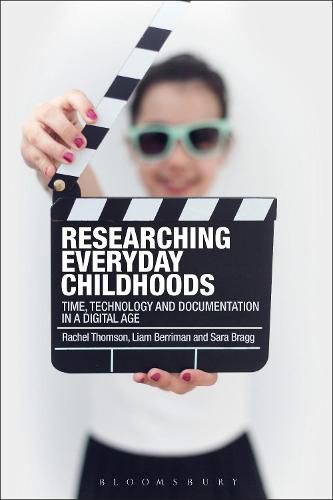Readings Newsletter
Become a Readings Member to make your shopping experience even easier.
Sign in or sign up for free!
You’re not far away from qualifying for FREE standard shipping within Australia
You’ve qualified for FREE standard shipping within Australia
The cart is loading…






This book is open access and available on www.bloomsburycollections.com. It is funded by the University of Sussex, UK.
How can we know about children’s everyday lives in a digitally saturated world? What is it like to grow up in and through new media? What happens between the ages of 7 and 15 and does it make sense to think of maturation as mediated? These questions are explored in this innovative book, which synthesizes empirical documentation of children’s everyday lives with discussions of key theoretical and methodological concepts to provide a unique guide to researching childhood and youth. Researching Everyday Childhoods begins by asking what recent ‘post-empirical’ and ‘post-digital’ frameworks can offer researchers of children and young people’s lives, particularly in researching and theorising how the digital remakes childhood and youth. The key ideas of time, technology and documentation are then introduced and are woven throughout the book’s chapters. Research-led, the book is informed by two state of the art empirical studies - ‘Face 2 Face’ and ‘Curating Childhoods’ - and links to a dynamic multimedia archive generated by the studies.
$9.00 standard shipping within Australia
FREE standard shipping within Australia for orders over $100.00
Express & International shipping calculated at checkout
This book is open access and available on www.bloomsburycollections.com. It is funded by the University of Sussex, UK.
How can we know about children’s everyday lives in a digitally saturated world? What is it like to grow up in and through new media? What happens between the ages of 7 and 15 and does it make sense to think of maturation as mediated? These questions are explored in this innovative book, which synthesizes empirical documentation of children’s everyday lives with discussions of key theoretical and methodological concepts to provide a unique guide to researching childhood and youth. Researching Everyday Childhoods begins by asking what recent ‘post-empirical’ and ‘post-digital’ frameworks can offer researchers of children and young people’s lives, particularly in researching and theorising how the digital remakes childhood and youth. The key ideas of time, technology and documentation are then introduced and are woven throughout the book’s chapters. Research-led, the book is informed by two state of the art empirical studies - ‘Face 2 Face’ and ‘Curating Childhoods’ - and links to a dynamic multimedia archive generated by the studies.